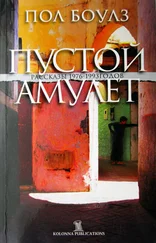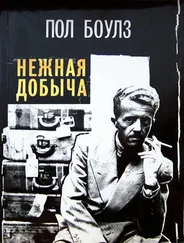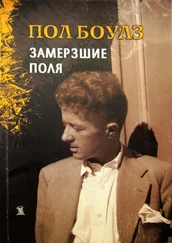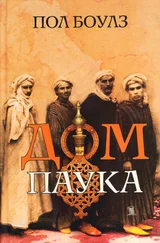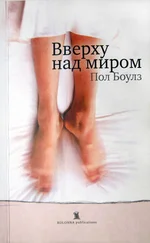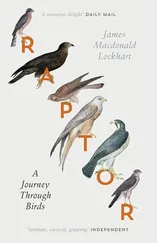Пол Боулз - Journey Through Morocco
Здесь есть возможность читать онлайн «Пол Боулз - Journey Through Morocco» весь текст электронной книги совершенно бесплатно (целиком полную версию без сокращений). В некоторых случаях можно слушать аудио, скачать через торрент в формате fb2 и присутствует краткое содержание. Год выпуска: 1963, Жанр: Современная проза, на английском языке. Описание произведения, (предисловие) а так же отзывы посетителей доступны на портале библиотеки ЛибКат.
- Название:Journey Through Morocco
- Автор:
- Жанр:
- Год:1963
- ISBN:нет данных
- Рейтинг книги:4 / 5. Голосов: 1
-
Избранное:Добавить в избранное
- Отзывы:
-
Ваша оценка:
- 80
- 1
- 2
- 3
- 4
- 5
Journey Through Morocco: краткое содержание, описание и аннотация
Предлагаем к чтению аннотацию, описание, краткое содержание или предисловие (зависит от того, что написал сам автор книги «Journey Through Morocco»). Если вы не нашли необходимую информацию о книге — напишите в комментариях, мы постараемся отыскать её.
magazine. (The original title was "The Route to Tassemsit".) Bowles begins his adventure by car in Tangier, driving through Chaouen, Marrakech, across the Middle, Grand and Anti-Atlas mountains, to Taroudant, Tiznit and Tafraout. He finally arrives at a remote village where he is entertained by musicians and dancers, while recording Moroccan music for the Library of Congress.
Journey Through Morocco — читать онлайн бесплатно полную книгу (весь текст) целиком
Ниже представлен текст книги, разбитый по страницам. Система сохранения места последней прочитанной страницы, позволяет с удобством читать онлайн бесплатно книгу «Journey Through Morocco», без необходимости каждый раз заново искать на чём Вы остановились. Поставьте закладку, и сможете в любой момент перейти на страницу, на которой закончили чтение.
Интервал:
Закладка:
It was an old-fashioned Moroccan dinner, beginning with soap, towels and a big ewer of hot water. When everyone had washed and dried himself, an earthenware dish at least a foot and a half across was brought in and set in our midst. It held a mountain of couscous surrounded by a sea of sauce. We ate in the traditional manner, using our fingers, a process which demands a certain minimum of technique. The sauce was bubbling hot, and the tiny grains of semolina (since the cook knew his business) did not adhere to each other. Some of the food we extracted from the mound in front of us got to our mouths, but a good deal of it did not. I decided to temporize a bit until someone had uncovered some of the meat buried in the center of the mass, and when my opportunity came I seized a small piece of lamb which was still too hot to touch with comfort, but which I managed nevertheless to eat.
"I see that even the rudiments of local etiquette remain unknown to you," remarked Monsieur Rousselot to me in a voice which carried overtones of triumph rather than the friendly concern it might have expressed. "Have I committed an infraction?" I asked. "Of the gravest," he said solemnly. "You ate a piece of meat. One is constrained to try some of every other element in the dish first, and even then one may not try the meat until one's host has offered one a piece of it with his own fingers."
I said this was the first time I had eaten in a home of the region. Seddiq, the medical student, observed that in Rabat such behavior as Monsieur described would be considered absurd. But Monsieur Rousselot was determined to be an old Moroccan hand. " Quelle decadence! " he snorted. "The younger generation knows nothing." A few minutes later he upset a full glass of tea on the rug. "In Rabat we don't do that either," murmured Seddiq.
Shortly after tea had been served for the third time, the electricity began to fail, and eventually it died. There was a pause in the talking. From where he sat, the head of the house shouted an order. Five white-dustered black men brought in candle lanterns; they were still placing them in strategic positions around the room when the lights came on again, brighter than before. The lanterns were quickly blown out. Candles are shameful. Twenty minutes later, in the midst of a lion story, (stories about lions are inevitable whenever city people gather in the country in South Morocco, although according to reliable sources the beasts have been extinct in the region for several generations), the current failed again, abruptly. In the silence of sudden darkness we heard a jackal yapping: the high sharp sound came from the direction of the riverbed.
"Very near," I remarked, partly to seem unaware of the host's probable embarrassment at having us witness the failure of his power system.
"Yes, isn't it?" He seemed to want to talk. "I have recorded them many times. Not one jackal ‑‑ whole packs of them."
"You recorded them? You have a tape recorder here?"
"From Marrakech. It doesn't work very well. At least, not always."
Monsieur Rousselot had been busy scrabbling around his portion of the rug; now he suddenly lit a match and put it to the candle of the lantern near him. Then he went the length of the big room, lighting the others. As the patterns painted on the high ceiling ecame visible again, there was the sound of hand drums approaching from the town.
"The entertainers are coming," said our host.
Monsieur Rousselot steped out into the courtyard. There was the increasing sound of voices; servants had appeared and were moving about beyond the doorway in the gloom. By the time we all went to look out, the courtyard had some fifty or sixty men in it, with more arriving. Someone ws building a fire over in a corner under the far arcade. A drum banged now and then as its owner tested the membrane. Again the electricity came on. The master of the palace smiled at Monsieur Rousselot, disappeared, and returned almost immediately with a servant who carried a tape recorder. It was a small model. He set it on a chair outside the doorway, and had difficulty connecting it because none of the wall plugs appeared to work. Eventually he found a live one. By that time more than a hundred men were massed under the arches around the open center of the courtyard, and in the middle were thirty or more musicians standing in a circle. The host had propped the microphone against the machine. "Why not hang it on the wall?" I suggested.
"I want to talk into it once in a while," he said. When he turned the volume up, the machine howled, of course, and there was laughter from the spectators, who until then had been very quiet. The host had another chair brought, and he sat down in it, holding the microphone in his hand. More chairs were provided from out of the darkness, and someone arrived bringing a pressure lantern, which was set inside the musicians' circle. The traditional fire for heating the drums should have been inside the circle, but there was not enough space in the courtyard to put it there.
The performers, all Negroes, wore loose white tunics, and each carried a poignard in a silver scabbard at his waist. Their drums were the regulation bendir , a skin stretched over a wooden hoop about a foot and a half in diameter. This simple instrument is capable of great sonorous variety, depending on the kind of blow and the exact spot on the membrane struck by the fingertips or palm. The men of South Morocco do not stand still when they play the drums; they dance, but the purpose of their choreography is to facilitate the production of rhythm. No matter how involved or frenzied the body movements of the players (who also sing in chorus and as soloists) the dancing is subordinate to the sound. It is very difficult to hear the music if one is watching the performance; I often keep my eyes shut during an entire number. The particular interest of the Anti-Atlas ahouache is that the drummers divide themselves into complementary groups, each of which provides only certain regularly recurring notes in the complex total of the rhythmical pattern.
The men began to play; the tempo was exaggeratedly slow. As they increased it imperceptibly, the subtle syncopations became more apparent. A man brandishing a gannega , a smaller drum with a higher pitch and an almost metallic sonority, moved into the center of the circle and started an electrifying counter-rhythmic solo. His virtuoso drumbeats showered out over the continuing basic design like machine-gun fire. There was no singing in this prelude. The drummers, shuffling their feet, began to lope forward as they played, and the circle's counter-clockwise movement gathered momentum. The laughter and comments from our side of the courtyard ceased, and even the master of the palace, sitting there with his microphone in his hand, surrendered to the general hypnosis the drummers were striving to create.
When the opening number was over, there was a noisy rearranging of chairs. These were straight-backed and completely uncomfortable, no matter how one sat in them, and it seemed clear that nobody ever used them save when Europeans were present. Few chairs are as comfortable as the Moroccan m'tarrba with its piles of cushions.
Out in the open part of the courtyard groups of three or four men were crossing to the far corner to tune their drums over the fire. Soon they began again to perform; a long, querulous vocal solo was the prelude. One might have thought it was coming from somewhere outside the palace, from the silence of the town, it was so thin and distant in sound. This was the leader, creating his effect by standing in the darkness under the arches, with his face turned to the wall, as far away as he could get from the other performers. Between each strophe of his chant there was a long, profound silence. I became more aware of the night outside, and of the superb remoteness of the town between the invisible canyon walls, whose only connection with the world was the unlikely trail we'd rattled down a few hours earlier. There was nothing to listen for in the spaces between the plaintive cries, but everyone listened just the same. Finally, the chorus answered the far-away soloist, and a new rhythm got under way. This time the circle remained stationary, and the men danced into and out of the center in pairs and groups, facing one another.
Читать дальшеИнтервал:
Закладка:
Похожие книги на «Journey Through Morocco»
Представляем Вашему вниманию похожие книги на «Journey Through Morocco» списком для выбора. Мы отобрали схожую по названию и смыслу литературу в надежде предоставить читателям больше вариантов отыскать новые, интересные, ещё непрочитанные произведения.
Обсуждение, отзывы о книге «Journey Through Morocco» и просто собственные мнения читателей. Оставьте ваши комментарии, напишите, что Вы думаете о произведении, его смысле или главных героях. Укажите что конкретно понравилось, а что нет, и почему Вы так считаете.

